Adderall is a medication that is primarily used to treat ADHD and narcolepsy but can also be used as a performance enhancer for sportsmen and sportswomen.
This is due to its ability to act as a central nervous stimulant which enables it to offer physical and mental energy boosts, delay the need for sleep and suppress appetite.
Adderall is a prescription drug with stimulant properties that can boost concentration and focus and gives people the psychological resources to engage in sustained mental work.
Adderall also helps to lower the intensity of impulsive urges and is capable of elevating a person’s mood, giving them a more positive mindset and helping them gain more control over their cognitive processes. (5,6)
Adderall’s active (psychoactive) ingredients
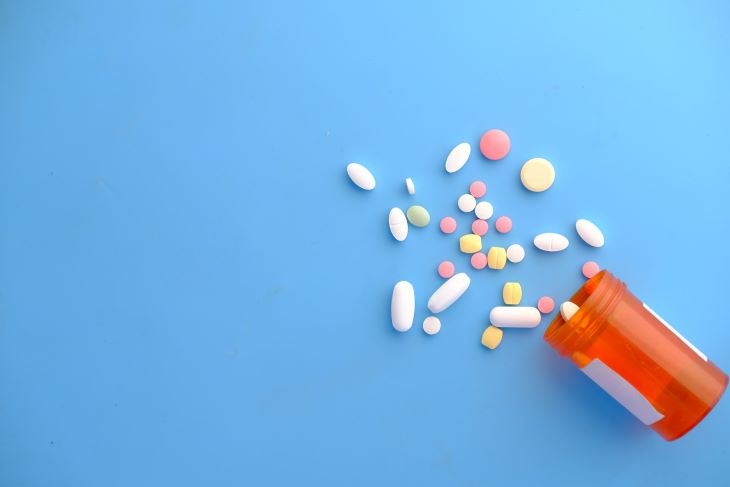
The main active ingredients in Adderall are amphetamine and dextroamphetamine, both of which boost the central nervous system as they are stimulant drugs.
Stimulant drugs have a psychoactive effect on the human brain meaning they can alter human perception, mood and emotions, consciousness and mental processes.
As the main chemical constituents of Adderall have stimulant qualities it is likely to gain the attention of recreational drug users seeking to take advantage of these effects. (5)
For example, it can be taken to maintain alertness, concentration and motivation for sustained periods making it an attractive option for:
- Students
- Highly pressurised professionals who need to focus intensely and carry out a lot of analytical work for a prolonged period, e.g lawyers, A & E doctors.
- Individuals who work several jobs to make ends meet when there is a downturn in the economy. More people are taking on extra work and pushing themselves to perform for 18 hours a day to combat rising costs.
- Emergency response who need to remain alert for sustained periods.
Attention Deficit and Hyperactivity Disorder (ADHD)

Adderall is predominantly prescribed for people diagnosed with ADHD, which has been categorised as a developmental disorder, the symptoms of which include:
- Inattentiveness (concentration and focus).
- Impulsivity and emotional control.
- Hyperactivity
- Problems with memory and other aspects of cognitive functioning.
- Impatience and low frustration tolerance. (5)
To combat the negative characteristics associated with ADHD, doctors prescribe drugs such as Adderall to help patients obtain a calmer disposition so they can focus and concentrate on the task at hand.
Adderall also helps people to gain control of their emotions and not be distracted by any impulsive urges that may disrupt their thought process. (6)
Adderall boosts vital brain hormones called catecholamines

The negative symptoms that are associated with ADHD arise because the efficiency of brain functioning is negatively impacted by complications with brain hormones called catecholamine, which is released in response to stressful situations i.e. the flight or fight response.
Three of these hormones are dopamine, adrenaline and noradrenaline.
Medications that seek to increase levels of catecholamine have been found very beneficial to people diagnosed with ADHD.
Adderall contains dextroamphetamine which is chemically similar to catecholamines found in the human brain and can therefore help to restore brain chemistry to a healthier state and cause the person fewer problems with anxiety and cognitive functioning.
Benefits of Adderall

Adderall contains chemicals that can help improve the symptoms of ADHD and help with:
- Increased capacity for greater physical and mental energy.
- Improved cognitive processing.
- Improved focus.
- Reduce impulsive behaviour.
- Will boost a low mood.
- Lower disruptive and aggressive behaviour.
Adderall – Side effects
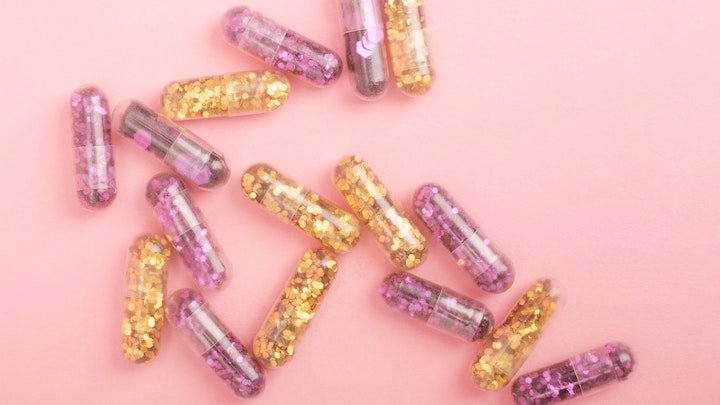
Like all medications that have a psychoactive effect even though it is a prescribed drug, Adderall can cause a range of side effects that may differ from person and person and include:
- A dry mouth.
- Dizzy spells.
- Feeling nauseous and vomiting.
- Fever symptoms.
- Reduced appetite.
- Bouts of diarrhoea.
- Noticeable weight loss.
- Frequent headaches.
- Difficulty sleeping.
- Elevated blood pressure, (known medically as hypertension).
- Anxiety/nervousness.
- Stomach aches and digestive problems.
- Low mood, symptoms of depression.
- Psychotic symptoms (losing touch with reality)
Adderall is potentially a drug that can be abused.
The psychoactive properties of Adderall mean it is a drug that has a high chance of being abused or used inappropriately by individuals who wish to take advantage of these benefits for their own gain.
For example, Adderall is also a mood enhancer so can be used by recreational users who are seeking to elevate their emotional state to gain a positive experience.
This is because it increases the level of a neurotransmitter in the brain called dopamine which activates a feel-good effect within us. This means that it is a drug that users (patients or recreational users) can easily become physically dependent on.
Stimulant drugs and neuroadaptation
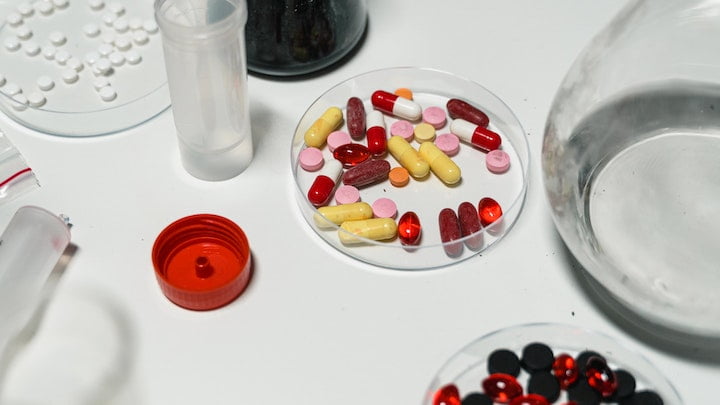
When people consume any type of psychoactive drug the chemicals attach to key receptors in the brain and can alter many aspects of our mental life.
When taken for the first time the body and brain are unfamiliar with processing the drug, but over time the body can adapt to its presence if the person continues to consume it in a process known as neuroadaptation.
The body gradually becomes more efficient at dealing with it, so it tends to have less of an effect on the user if they continue to take the same dose size, leaving them feeling unsatisfied.
Tolerance of Adderall can develop quickly
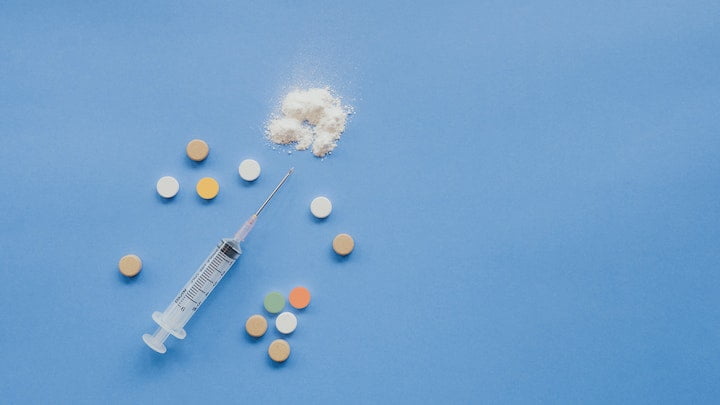
The only way recreational users can recapture the feelings and effects they obtained when initially taking the drug is to consume higher amounts of it.
However, any person at this stage has now developed a tolerance to the drug which is a sign that they are approaching the early stages of physical dependence which could eventually lead to them entering the cycle of addiction.
Anyone who has built up a tolerance to the drug and stops consuming it will experience uncomfortable withdrawal symptoms, with those whose tolerance has increased the most likely to suffer the severest symptoms.
However, it must be emphasised that anyone taking Adderall under the supervision of a medical professional can still be vulnerable to developing a dependence on the drug.
This is likely to occur if they do not follow the guidelines set for use by the doctor and adhere to the instructions that come with the drug.
Many people who have become dependent on the drug initially started out by obtaining a prescription from a GP or psychiatrist.
Why seek natural alternatives to Adderall?

Pharmacological interventions for ADHD such as Adderall do overall tend to improve the common symptoms of ADHD for the majority of children and adults
Although it is worth mentioning that research has suggested that approximately 25% of patients taking medication for ADHD do not respond well to the medication.
Unfortunately, a significant number of people are so negatively affected by its accompanying side effects that they cannot continue taking the medication. (1)
Concerns
There are also many concerns that arise regarding the long-term use of the medication as there is always a strong risk of drug abuse and/or physical dependence.
ADHD is not a temporary condition that disappears but a condition that needs to be managed throughout a person’s life.
Parents of children with ADHD and individuals with an adult diagnosis, therefore, are keen to find other ways to deal with the challenges they face when dealing with the decline in cognitive and emotional functioning that is associated with ADHD.
Because mediation comes with several undesirable side effects many people (including parents with children with ADHD) are constantly seeking natural alternatives that can improve the symptoms of ADHD.
It is important that any alternative does not have the inconvenient and uncomfortable side effects of manufactured medications and will therefore not restrict the lives of people with ADHD or cause them long-term physical harm. (1,6)
Natural alternatives to Adderall

There has been an abundance of scientific studies completed which have investigated the chemical and biological make-up of many botanical and nutritional compounds to identify if they contain physical properties that can help to alleviate the negative symptoms associated with ADHD.
These scientific studies have been conducted in the area of chemistry, botany and nutritional science to establish if taking certain supplements or food types can benefit the mental and emotional capabilities of people diagnosed with ADHD without causing too many negative side effects that could hamper their quality of life. (1,3)
Natural alternatives to Adderall – Botanical

In terms of the scientific research that has focused on the therapeutical value of several botanically-based sources the following findings are apparent:
- Bacapo (also known as water hyssop) has been found to reduce several ADHD symptoms including restlessness, poor self-control and attention and impulsive behaviour.
- Ginko Biloba (also known as maidenhair tree) improved the core symptoms of ADHD by enabling greater blood flow throughout the brain.
- Ginseng improved attention and focus and reduced symptoms of hyperactivity.
- Passion Flower improved the main symptoms of ADHD.
- Valerian improved the ADHD symptoms of impulsivity, inattention and hyperactivity.
- Pycnogenol (extracted from the bark of the maritime pine) Several experiments have shown that Pycnogenol can reduce hyperactivity, improve attention and help improve visual-motor system coordination as well as repair cell damage more efficiently.
Natural alternatives to Adderall– Nutritional

- Essential fatty acids – Research has shown that free fatty acids helped improve inattention, and hyperactive tendencies as well as several aspects of cognition and lead to an increase in positive emotions and a decrease in negative emotional states.
- Iron – Research studies have revealed that iron leads to some improvements in the symptoms of hyperactivity. impulsivity and inattention.
- Zinc – Has been shown to improve impulsivity and hyperactivity but not shown to improve attention and focus.
- Magnesium – Hyperactivity and aggressiveness were significantly reduced and many children have shown greater attention at school since consuming more magnesium.
- Vitamins – Vitamin B6 led to a reduction in hyperactivity and aggressive behaviour and children showed greater concentration at school. (1)
Over-the-counter natural alternatives
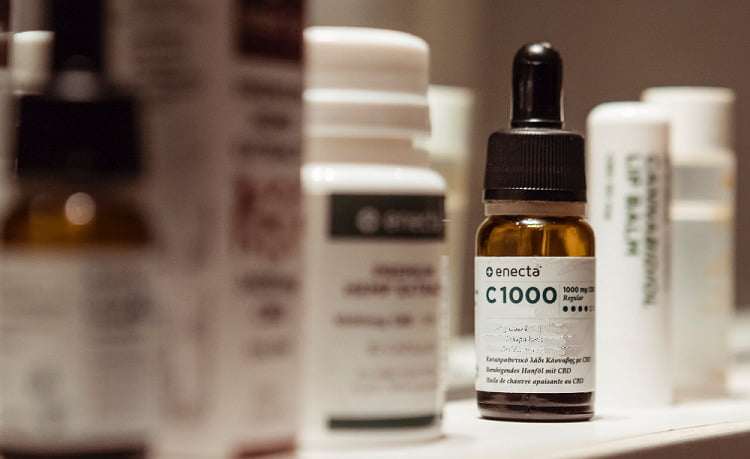
Many supplements have been developed over recent years which contain natural elements that can help overcome the negative symptoms of ADHD.
This is achieved by boosting the brain’s natural supply of several key chemicals and neurotransmitters which have dropped to a lower level in people with ADHD.
Examples of these include:
Alpha GPC
Alpha GPC replenishes low levels of acetylcholine, which is an important neurotransmitter (a chemical messenger responsible for triggering action) that enables us to pay attention and learn and remember information.
Scientific research has revealed that approximately a large proportion of children diagnosed with ADHD has significantly less acetylcholine present throughout their brain.
Alpha GPC is therefore a suitable natural alternative that aids concentration and attention. (1,3)
Bacopa monnieri
Bacopa monnieri has in the past been acknowledged as a herb with medicinal properties that can maintain desirable levels of serotonin and dopamine in key brain areas.
Because of this people who take the supplement will find that their mental alertness will be at an optimum level and they will retain a healthy amount of physical and mental energy.
This herb strengthens the communicative qualities of nerve endings in the brain so that concentration levels do not drop too low. This will result in improved memory and effective decision-making, attention and an improved capability for analysis.
L-Theanine
L Theanine is a non-essential amino acid that possesses several advantages for brain and cognitive health.
This is considered a safe and natural option for Adderall, and analysis of this supplement in scientific laboratories has found that it can reduce anxiety levels and stress.
This is because its chemicals raise the amount of GABA and glycine in the brain which has the beneficial effect of reducing anxiety and enabling people to feel calmer.
This is very important for people with ADHD who can start to gain control of their symptoms due to a decrease in excitable brain activity after ingesting L-Theanine.
L-Theanine has been touted to be an excellent alternative to Adderall and it also has the added advantage of reducing any slight cognitive deficiencies a person may have. (1,3)
Ginkgo Biloba
Ginko Biloba has been widely acknowledged as a herb that is very beneficial for brain health and these qualities make it a promising option for children diagnosed with ADHD as this herb ensures there is a healthy balance of all the important neurotransmitters necessary for the brain to function at an optimum level.
Ginko Biloba ensures that there are sufficient levels of acetylcholine, dopamine, serotonin and norepinephrine available in the brain which results in improvements in the brain’s attention span.
This will enable people to keep focused for longer and there is also likely to be a decrease in any impulsive tendencies a person has. (1,3)
Phosphatidylserine
Ingesting Phosphatidylserine will significantly maintain brain health as the membranes around brain cells will become stronger and more durable.
This supplement is excellent for improving memory and other aspects of cognitive functioning and has also been shown to significantly lower anxious feelings and elevate a person’s mood from a depressed state. (1,3)
Mental control

Phosphatidylserine also helps children with ADHD gain more mental control which will diminish the frequency of impulsive behaviour.
Researchers investigating the effects of phosphatidylserine have found that it also improves the efficiency of several cognitive functions and improves the accuracy of their analysis and calculations.
Caution

There can be side effects, however, and these products can interfere with any medications people are taking.
It is always advisable to consult with your GP or pharmacist first so that they can review your current medical situation and history to see if there is a chance of any negative reactions occurring. (4,5)
Combination supplements

There have also been specially prepared supplements designed which combine several of the key natural ingredients mentioned above that have been found to improve brain functioning, and concentration and to reduce anxiety and excessive brain activity.
Examples of these include:
- Mind Lab Pro
- Performance Lab Nootropics
- NooCube
- BrainPill (3,4)
A word of caution

Even though research has indicated that there are potential side effects from taking some of these natural ingredients it is highly unlikely they will lead to anyone becoming physically dependent.
Scientists that have investigated the potential advantages of using these natural sources for treating ADHD have concluded that overall there tend to be mixed findings with some plant extracts, vitamins and minerals being more effective than others, whereas others have shown no benefits at all.
It was also apparent that all of the natural supplements vary in terms of which ADHD symptoms they alleviate.
Natural supplements are a safer alternative
However, what does seem clear is that these natural supplements do offer a safer alternative when compared with medications used to treat ADHD such as Adderall or Ritalin.
The negative side effects are either not present or are significantly reduced which means they do not impact too negatively on people’s lives. It is challenging to establish clear consistent findings when researching this area and to say with any certainty how effective and safe these natural alternatives are over the long term.
This is because some herbs have several psychoactive factors and a lot is still unknown about the long-term toxic effects so there is a lot of uncertainty about their use even though many natural supplements do appear to improve ADHD symptoms.
Natural products could become part of a Combination therapy / Multi-modal approach to treating ADHD
It is clear that ADHD is a very complicated, multi-layered conditions condition which is caused by many biological and social factors.
Many researchers in the area feel that natural supplements have not been researched thoroughly enough in terms of establishing exactly how they work and whether they are safe to be used over the long term as even though they are natural products there is still the possibility that they could cause a person harm if too much of the supplement is taken.
Research findings do suggest several natural extracts are beneficial for ADHD symptoms though and at the moment they are probably best used as part of a holistic plan which combines several different treatment areas.
This includes behavioural therapy and medication such as Adderall rather than be used instead of, as their long-term suitability in treating ADHD has not yet been established.
References
(1) Ahn, J. et al (2016) Natural Product-Derived Treatments for Attention-Deficit/Hyperactivity Disorder: Safety, Efficacy, and Therapeutic Potential of Combination Therapy. Neural Plasticity. doi: 10.1155/2016/1320423 available@Natural Product-Derived Treatments for Attention-Deficit/Hyperactivity Disorder: Safety, Efficacy, and Therapeutic Potential of Combination Therapy – PMC (nih.gov)
(2) Faraone S V, Biederman J. (2002) Efficacy of Adderall for attention-deficit/hyperactivity disorder: a meta-analysis. Journal of Attention Disorders 2002; 6(2): 69-75. Available@ Efficacy of Adderall for Attention-Deficit/Hyperactivity Disorder: a meta-analysis – PubMed (nih.gov)
(3) Hoarau, J. Langdon, K. (2020) Adderall Alternatives: Natural OTC Supplements To Increase Focus.available@Adderall Alternatives: Natural OTC Supplements To Increase Focus – Farr Institute
(4) KidenyUrology.org (2023) Best Adderall Alternatives – Over The Counter Brain Enhancement Pills. available@Best Adderall Alternatives – Over The Counter Brain Enhancement Pills (kidneyurology.org)
(5) Lakhan, S, Kirchkessegner, A. (2012) Prescription stimulants in individuals with and without attention deficit hyperactivity disorder: misuse, cognitive impact, and adverse effects. Brain and Behaviour 2(5). available@Prescription stimulants in individuals with and without attention deficit hyperactivity disorder: misuse, cognitive impact, and adverse effects – PMC (nih.gov)
(6) NHS (2022) Attention Deficit and Hyperactivity Disorder: An Overview. availble@ Attention deficit hyperactivity disorder (ADHD) – NHS (www.nhs.uk)





